Unlock 16 Secrets of High Yield Plant Growth to make plants grow faster and bigger using these natural ingredients in your garden.
The basic requirements for plants to grow are sufficient sunlight and proper watering. However, you can take some extra measures to enhance productivity without causing them any harm by using our Secrets of High Yield Plant Growth! Read in detail to learn about them!
List of Secret Ingredients to Make your Garden Grow
1. Wood Ash
Do you know that you can use the wood ash from your fireplace as a secret ingredient for your plant’s growth?
Wood ash is alkaline and is a great neutralizing agent for acidic soil. However, avoid using it hot as it can kill microorganisms present in the soil. Also, check the pH of the soil before applying it.
How to Use: Read the article to learn about the use of wood ash in the garden
2. Aspirin
Apart from reducing pain, aspirin tablets can also be used in the garden as they contain salicylic acid that works on boosting the immune system of plants and prevents fungal diseases.
It helps cut plants and flowers to last longer. This is surely one of the best natural ways to grow plants faster and bigger!
How to Use: Check out Aspirin uses in the garden here!
3. Leftover Fruits & Vegetables
Don’t throw the leftover fruits and vegetables in the garbage next time, as you can use them in your garden. There are many nutrients present in the peelings of vegetables and fruits.
For example, the banana peel is rich in potassium and phosphorous. Therefore, you can use it for tomatoes, rosebushes, peppers, and flowering plants.
How to Use: Read the detailed article on its uses here!
4. Vinegar
Vinegar has multiple uses in the garden, primarily as an herbicide. Also, it is safe for plants and inexpensive as well. You can use white vinegar with a 10% or 20% solution.
Add a cup of salt, a tablespoon of lemon juice, and two tablespoons of dish soap. Stir it well and spray it on plants.
How to Use: Read more in detail about the Uses of Vinegar in the Garden here!
5. Carbonated Water
CO2 is an essential part of photosynthesis, as plants cannot produce sugar in the absence of carbon dioxide and the sun. Thus, feeding the plants with water that has CO2, helps the plants to grow rapidly and greener.
Carbonated water contains many macronutrients such as oxygen, hydrogen, phosphorus, carbon, potassium, and sodium; all of which are advantageous for the growth of plants.
How to Use: Mix one can of club soda in one beer can (12 oz), half a cup of liquid dish wash and 1/2 cup mouthwash, and a half cup of household ammonia. Use a hose sprayer and spray this solution once every three weeks. It is one of the best natural ways to grow plants faster and bigger!
Note: Avoid using sugar-contained soda drinks as they attract pests and disturb the NPK ratio of the soil.
To learn more about chemical-free fertilizers, click here!
6. Coffee Grounds
Using coffee grounds as a fertilizer in the garden benefits your plants in a great way, as it provides ample aeration and improves drainage as well.
Coffee grounds are enriched with phosphorus, potassium, magnesium, and copper. They also discharge nitrogen while degrading in the soil. Coffee grounds are mildly acidic in nature, which makes them a good companion for neutral and alkaline soil.
How to Use: To know the various uses of coffee in the garden, click here!
7. Eggshells
Eggshells are generally thrown in trash bins, but they are one of the best secrets of high-yield plant growth. They are rich in calcium and are also biodegradable.
The use of eggshells is particularly helpful for plants like tomatoes, which are often tormented by the deficiency of calcium.
Just crush the eggshells and mix them in the soil where you want to plant tomatoes.
How to Use: To learn how to use eggshells in the garden, click here!
8. Used Teabags/Leaves
Generally, people dispose of used teabags and leaves since they are not aware of their hidden benefits. Tea leaves and bags contain many nutrients that help in improving soil structure and drainage.
Also, used tea leaves contain nitrogen, potassium, phosphorus, magnesium, and calcium that boost plant growth. The tannic acid in tea can slightly change and reduce soil pH, like in coffee grounds, which makes it good for acid-loving plants.
How to Use: For more tea bags and leaves uses in the garden, click here!
9. Grass Clippings
Grass clippings decompose quickly and release nitrogen and some other nutrients back to the soil naturally, improving the quality of the soil of your garden.
Also, grass clippings provide an optimum environment for earthworms, and they, in return, encourage soil aeration. To learn how to make liquid fertilizer from grass clipping, click here.
How to Use: To learn about the uses of grass clippings, click here.
10. Compost Tea
If you’re an organic gardener, you can use compost tea to enhance the plant’s growth, as it helps in producing greener leaves, improving the flavor of vegetables, and boosting the size of plants.
It also encourages the growth of microbes and is an excellent replacement for chemical fertilizers that are harmful to beneficial insects and soil. It is one of the best natural ways to grow plants faster and bigger! Check this video for more info.
How to Use: Fill the solution in a spray bottle and use it as a foliar spray or pour it at the base of your plant.
11. Turmeric
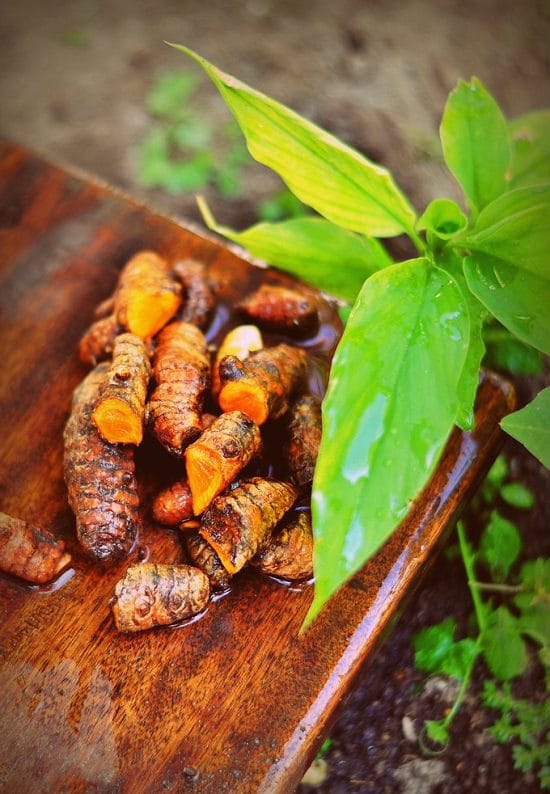
Turmeric has the most effective compound, curcumin, which has many scientifically proven benefits for human health. Since it is an excellent pest repellent, sprinkling turmeric nearby the roots will keep pests at bay.
It also kills many disease-causing microbes that are harmful to plants as it is a natural fungicide and bactericide. It is one of the best Secrets of High Yield Plant Growth!
How to Use: To learn about its uses, click here!
12. Aquarium Water
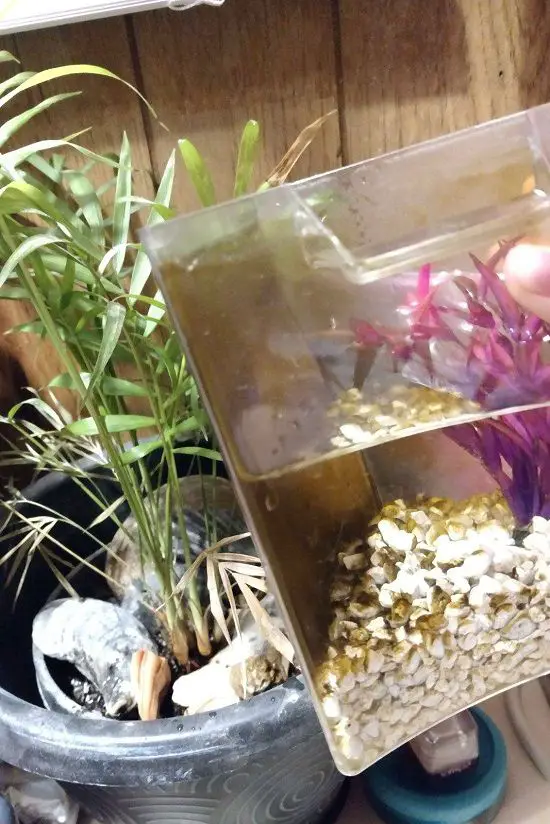
Don’t consider fish tank water as waste as you can utilize aquarium water to nourish your plants since it holds decaying particles and fish waste that contain beneficial minerals and bacteria that help stimulate plant growth. It is one of the best natural ways to grow plants faster and bigger!
It also provides trace nutrients to the soil that helps plants to flourish.
How to Use: Use it normally for watering the plants. You can also dunk your air plants in it to fertilize them.
13. Milk
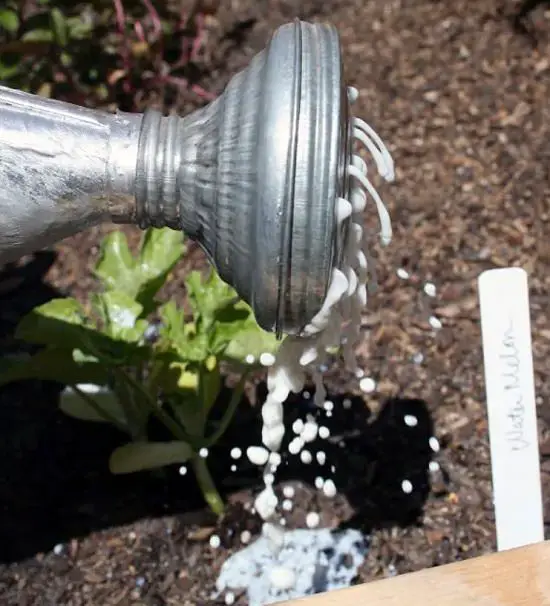
Milk is a good source of calcium that aids in making bones healthy and strong. But feeding your plant with a dose of milk in the garden also helps in a great way.
Apart from that, it has many other uses in the garden as well. You can use it as a fungicide by spraying a diluted solution on the plants.
Also, the application of milk helps in improving soil health, controlling insects, and acts as a disinfectant.
Check out the amazing uses of milk here!
How to Use: Prepare a solution by diluting the milk with water, making a 50:50 ratio. Fill the solution in a spray bottle and use it on plants to kill the fungal infection.
14. Cinnamon
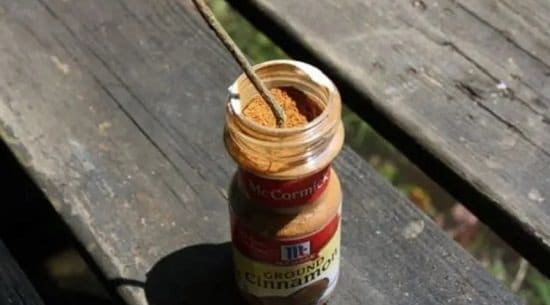
You must be definitely aware of the various uses of cinnamon in the kitchen, but have you ever heard about the use of this amazing spice in the garden for your plant health? Yes!
You can use cinnamon in multiple ways in your garden, such as a rooting hormone, to protect seedlings from diseases and to heal plant wounds.
To know more uses of Cinnamon uses in the garden, click here
How to Use: Add some cinnamon sticks to the warm water and allow them to steep overnight. Strain it the next morning and fill the solution in a clean spray bottle and spritz this solution on your plants to kill pests, heal plant wounds, and protect seedlings from diseases.
15. Activated Charcoal
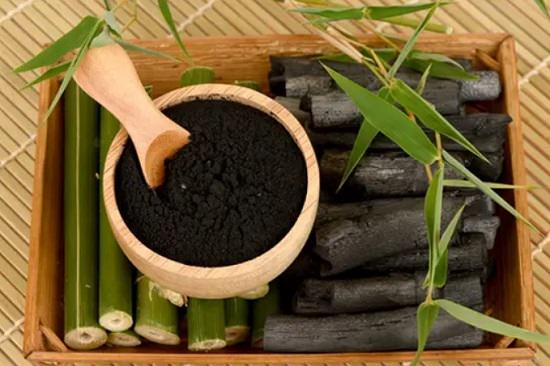
Activated charcoal has many commercial and industrial uses, but you might not know that it can also be used for the growth of plants!
Applying a layer of charcoal to the soil makes your garden disease-free and productive. If you are a container gardener, use it by adding a layer of granular activated charcoal at the bottom of the container to improve drainage.
How to Use: To learn more about its uses, click here!
16. Boiled Vegetable Water
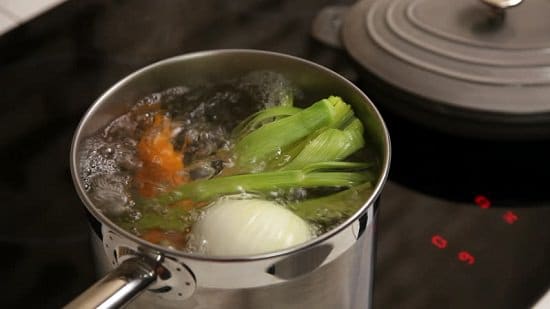
The remaining water, after boiling vegetables, is useful for your plants as it contains various micro and macronutrients. When you boil vegetables, many plant elements, such as calcium, nitrogen, and phosphorus, get mixed in the water.
You can use this water to provide nourishment to your plants as it greatly helps them in growth and flowering.
How to Use: Allow the water to cool down and use it for watering the plants.

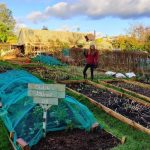
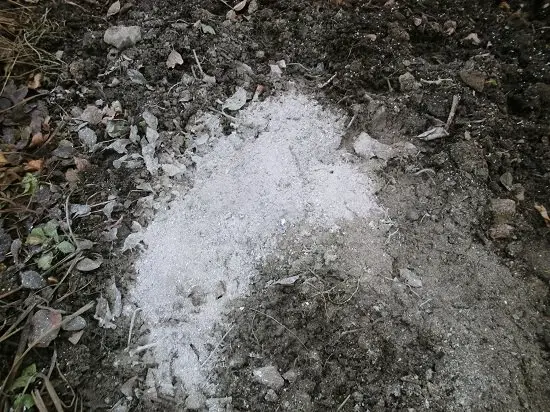
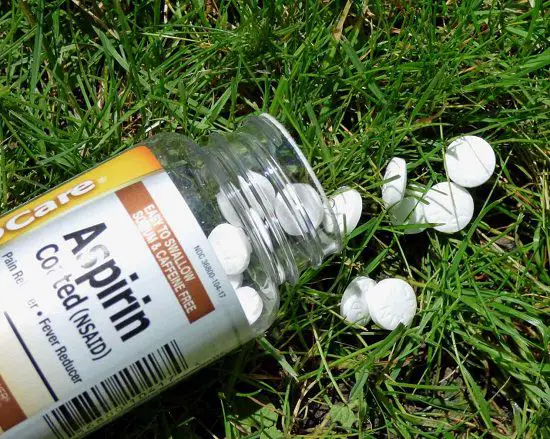
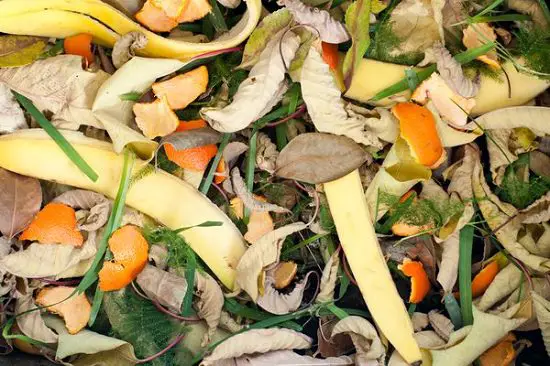
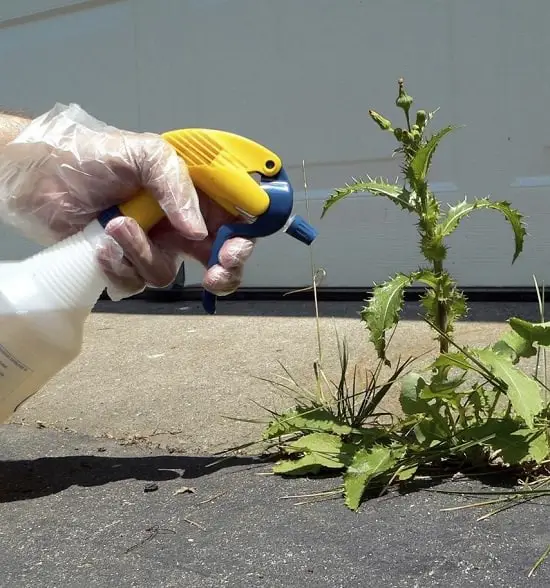
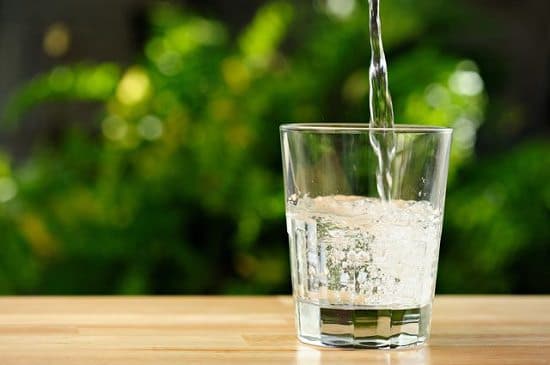
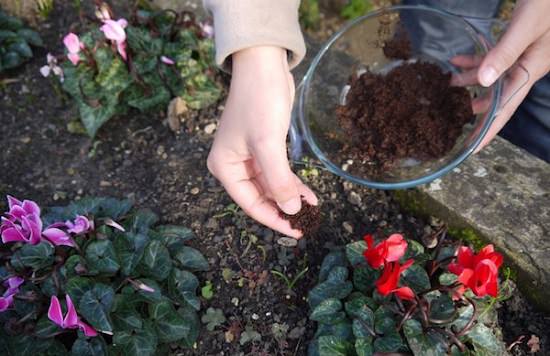
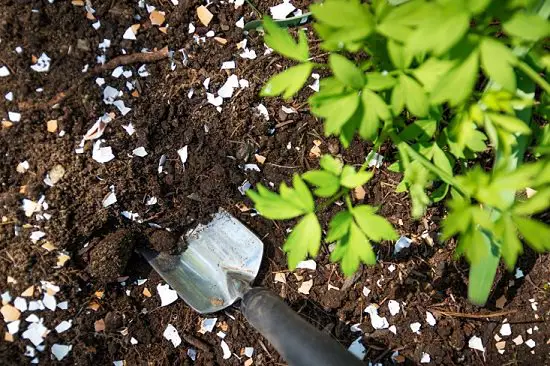
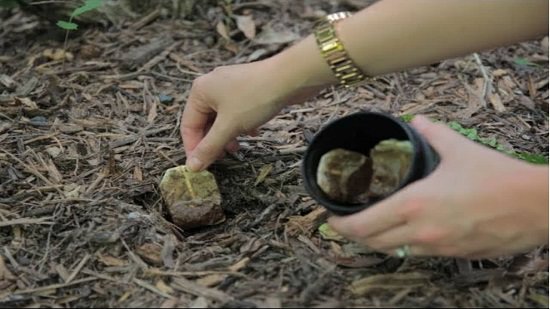
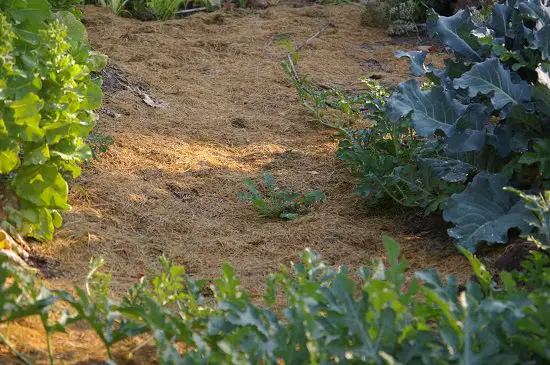
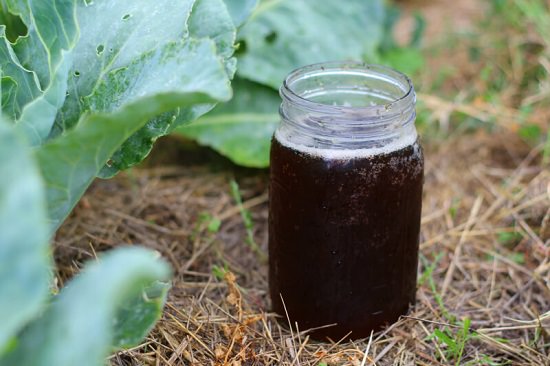

Very helpful tips thank u
I do agree with all of the ideas you have presented in your post. They’re really convincing and will definitely work. Still, the posts are very short for beginners. Could you please extend them a bit from next time? Thanks for the post.
Thanks for the knowledge shared ….
Need to develop my balcony plz contact at 9560231356